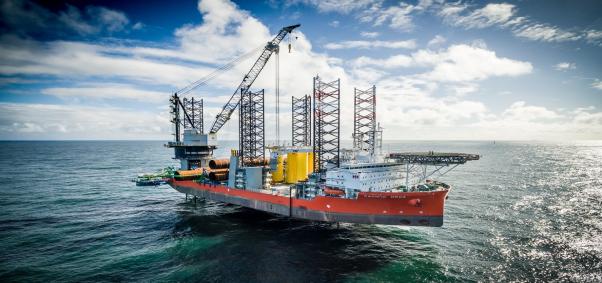
This article was published in The Indian Express on August 12, 2015.
Paul Polman is the CEO of Unilever and a member of the Global Commission on the Economy and Climate. Naina Lal Kidwai is a member of the Global Commission on the Economy and Climate, Chairman of Max Financial Services, and Chairman of FICCI Water Mission.
People often ask CEOs for business advice, and we would like to share an especially important message — the low-carbon economy is the biggest opportunity of our lifetimes, and businesses that fail to recognise this fact risk being left behind.
The new climate economy is becoming a reality, and businesses worldwide are realising they not only have a crucial role to play in the fight against climate change, but they also have a lot to gain — including billions in cost reductions or fuel savings, or a piece of the growing $5.5 trillion global market for low-carbon goods and services. With the help of international partnerships, it is possible through 10 key actions to generate better economic growth while achieving up to 96 per cent of the emissions reductions needed to avoid dangerous climate change.
As we near the COP-21 summit in Paris this December, businesses have a major role to play in driving low-carbon growth. Five hundred of the largest businesses in the world alone account for 14 per cent of all global emissions. Climate commitments and actions by businesses, including in land use, renewable energy, energy efficiency and clean infrastructure are already fast gaining momentum.
And their actions are paying off — the most sustainable companies now exceed their peers in stock market value and financial performance. The CDP Climate Leadership Index, consisting of companies taking the strongest climate action, has outperformed the Bloomberg World Index of top companies by just over 9 per cent over the past four years. And 53 of the Fortune 100 companies are together saving $1.1 billion annually by investing in energy efficiency, renewable energy and emissions reductions.
India’s leading association of business organisations, the Federation of Indian Chambers of Commerce and Industry, has established a new “green bond” working group to examine how the country’s debt markets can enable the financing of smart infrastructure.
Cooperative initiatives can allow businesses to go even further. They can set new norms and expectations for how businesses should respond to climate issues, and can catalyse a low-carbon transformation. For example, the Tropical Forest Alliance 2020 is a public-private partnership that aims to transform the market for key agricultural commodities. Through the alliance, companies representing 90 per cent of the global trade in palm oil (including Unilever), have already committed to deforestation-free supply chains by 2020. Effectively, we have shifted the market to make traded palm oil supply chains deforestation-free. And we are aiming to do the same with other key commodities. In another example, the Low Carbon Technology Partnerships initiative, under the World Business Council for Sustainable Development (WBCSD), International Energy Agency (IEA) and the Sustainable Development Solutions Network (SDSN), brings together about 100 companies to accelerate the development and deployment of low-carbon technologies in key fields.
Failing to act on climate change would have clear consequences for business. Unilever, for instance, already faces $400 million a year in increased costs due to extreme weather events, and is not alone. Eighty-eight per cent of the 2,300 companies reporting to the CDP in 2014 said climate change is an operational risk. And it is only going to worsen in the years to come.
Climate risk is also important to the financial sector. The G-20 has asked the Financial Stability Board to investigate the impact of climate risk and climate policy, while countries such as China are working on a comprehensive framework for a “green financial system”. The UNEP Inquiry is working with investors, the broader business community and governments — including China and India — to create a sustainable, low-carbon financial system.
India has an opportunity to improve the quality and quantity of its economic growth by embracing the low-carbon economy and focusing on access to water and electricity. The government’s ambitious goals for renewable energy and conserving our precious ater resources recognise this. A low-carbon transition will improve our productivity and would allow us to enjoy cleaner air in our cities as it envisages us living in more compact, connected and coordinated cities.
As the Paris climate summit approaches, climate action by companies has been extending beyond balance sheets into the international policy debate. In May, at the Business and Climate Summit in Paris, a group of business associations representing 6.5 million firms called for an international climate agreement, and I [Polman] was proud to add Unilever’s voice to the chorus. Over 1,000 major companies and investors have called on countries to implement carbon pricing.
We are seeing an unprecedented convergence around strong climate action, from government, from business, and from the religious community. In May, we were honoured to be part of a small group that met and briefed the pope and several of his top cardinals on how economic growth and sustainability can go hand-in-hand. The mobilisation of such diverse groups towards the same end bodes well for the future of our planet.
2015 is a critical year, the year the international community gathers together to ensure a safe future by determining sustainable development goals and our response to climate change. Smart businesses around the world increasingly recognise that their bottomline requires climate action, and they are looking to capitalise on the new climate economy. Are you?






